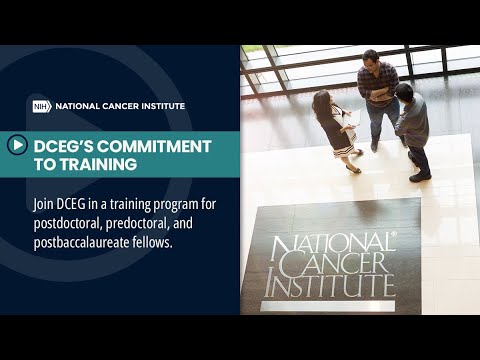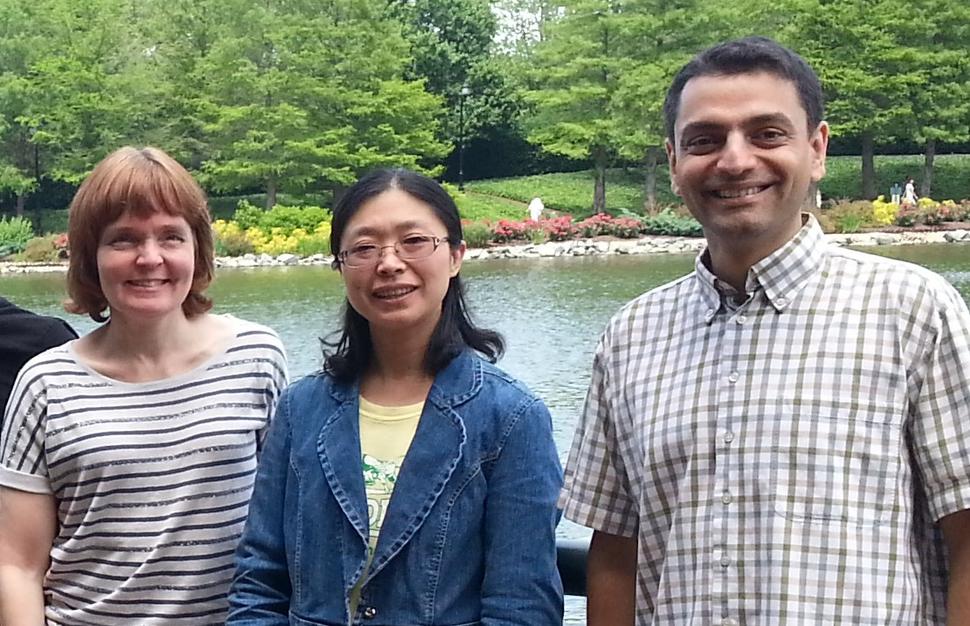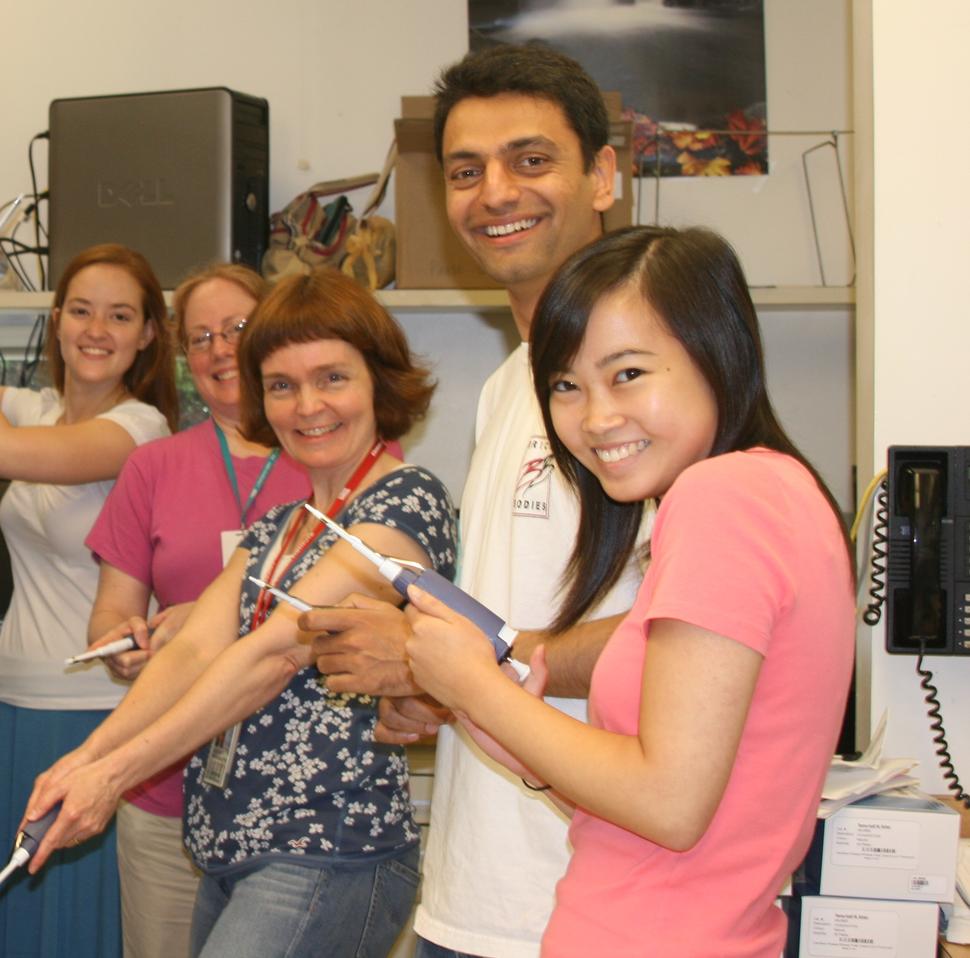Mentorship at DCEG: A Tradition of Excellence
, by Justine E. Yu, Ph.D.
The Division of Cancer Epidemiology and Genetics (DCEG) is committed to training the next generation of scientists to uncover the genetic and environmental causes of cancer and the means to prevention. “Since its establishment in 1995, mentoring was and has remained a core value of the Division, coinciding with our commitment to interdisciplinary collaborations,” said Director Stephen J. Chanock, M.D. “Over the years, DCEG has trained hundreds of epidemiologists who have contributed to advancements in public health. Investing in mentorship and training has been essential to our success and longevity as a premier research program of cancer epidemiology and genetics.”
From its early years, the Division’s fellowship and training program has evolved to host over 100 fellows in any given year. To support healthy and successful mentorships, Jackie Lavigne, Ph.D., M.P.H., Chief of the Office of Education, provides numerous training opportunities, including a periodic workshop for mentors—“Entering Mentoring” developed by the Center for the Improvement of Mentored Experiences in Research—and an annual one for fellows—“Making the Most of Mentoring Relationships.” The NIH Office of Intramural Training and Education also offers a variety of courses for fellows to prepare for a teaching career or to develop mentoring skills of their own. “The trainings give mentors and mentees the tools to effectively communicate and align expectations,” said Dr. Lavigne. “In addition, the NCI Individual Development Plan ensures the mentor and mentee are communicating about personal and professional goals.”
Below is the first installment of a series describing past and present mentor-mentee pairs that highlight mentoring excellence in DCEG.
Laboratory of Translational Genomics: Laufey Amundadottir and Hemang Parikh
Former research fellow, Hemang Parikh, Ph.D., wanted to apply his background in engineering, computer science, and bioinformatics to cancer genomics research. In 2009, he joined the Laboratory of Translational Genomics (LTG), whose mission is to understand the contribution of germline and somatic genetic variation to cancer etiology and outcomes, under the mentorship of Laufey Amundadottir, Ph.D., senior investigator. “LTG was still relatively new and it was an exciting time to be working there,” reflected Dr. Parikh. “It was a collaborative environment. Across the Division, from biostatisticians, bioinformaticians, geneticists, and epidemiologists—everyone was eager to learn from each other.”
“In addition to the interdisciplinary culture of DCEG, Laufey guided me to develop a collaborative mindset and to learn from others,” said Dr. Parikh, now an assistant professor at the University of South Florida. Dr. Parikh applies what he has learned from Dr. Amundadottir to training his own mentees: “I learned the importance of open and frequent communication between a mentor and mentee. She supported my ideas, nurtured my scientific curiosity through her passion for biomedical research, and always encouraged me to think outside the box. She fostered my leadership skills in collaborating in large international consortiums.”
Dr. Amundadottir credits Stephen J. Chanock, M.D., Director of DCEG and former Chief of LTG, and Patricia Hartge, Sc.D., M.A., Scientist Emerita and former Deputy Director of the Epidemiology and Biostatistics Program as her influential mentors. When Dr. Amundadottir joined the Division, the Pancreatic Cancer Cohort Consortium, launched to identify the genetic determinants of pancreatic cancer risk, was in its early stages. While initially involved in the primary analysis of the PanScan GWAS data, she eventually became one of the co-leaders with Rachael Stoltzenberg-Solomon, Ph.D., M.P.H., R.D., senior investigator in the Metabolic Epidemiology Branch. “I didn’t recognize it at the time, but Stephen and Trisha were training us to lead PanScan, and when the time came, they pulled back and let us move forward.”
With regard to her mentoring philosophy, Dr. Amundadottir said, “as a mentor, I try to build an inclusive and collaborative work environment where everyone is treated like an equal partner in decision-making.” She attributes Dr. Hartge for inspiring this egalitarian approach, “On every conference call for the Pancreatic Cancer Cohort Consortium, Trisha would take the time and make sure everyone had the opportunity to speak. It helped us feel respected and valued, which I think brings out the best in people.”


